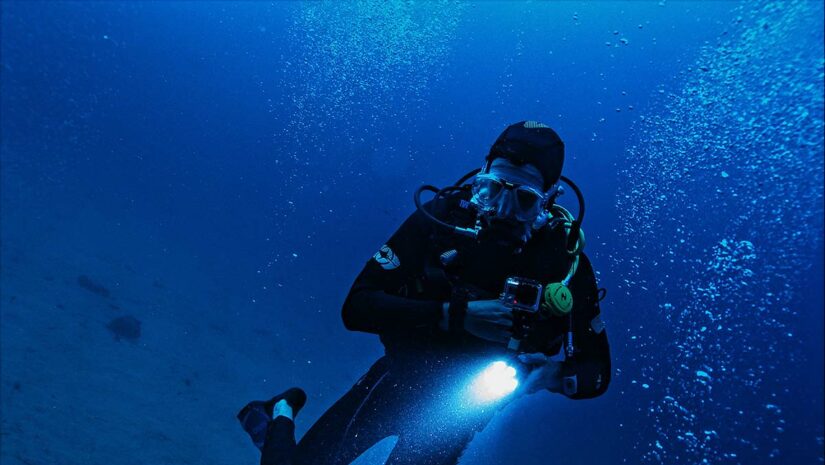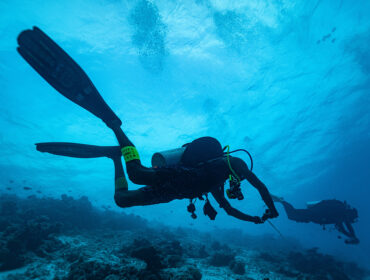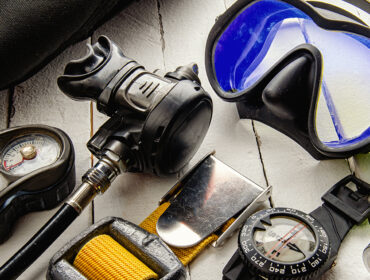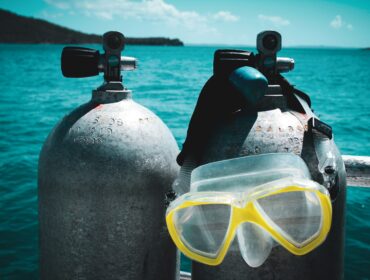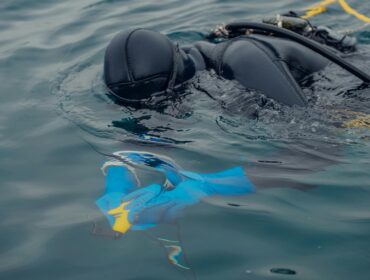During your scuba dive training, you learn about the importance of being in good physical condition to dive. While scuba diving is relatively “low effort” compared to traditional types of exercise and sport, being in good physical condition is still important to ensure your safety underwater.
Why it’s important to maintain your physical fitness for scuba diving
One of the major ways that being in good physical condition can protect you when scuba diving is by reducing your susceptibility to Decompression Sickness (DCS). By increasing your lean body mass and reducing the fat content in the body, you improve the body’s capacity to carry oxygen and improve circulation. This leads to a greatly reduced susceptibility to DCS.
Being in good physical condition can also improve your diving, leading to health benefits, more comfortable dives, and more enjoyable time under water.

What does it mean to be in good physical condition for diving?
When it comes to physical fitness for diving, it’s important that divers have both a degree of cardiovascular fitness and strength.
Being underwater puts stress on our cardiovascular system. Even the easiest of dives can create problems for someone who’s cardiovascular system is not in shape. According to the Divers Alert Network (DAN), “nearly one-third of all diving fatalities are associated with an acute cardiac event”. Maintaining good cardiovascular fitness can protect your body from cardiovascular related injuries while diving.
Divers also need a certain amount of muscular fitness, which includes both strength and endurance. Divers need endurance when finning through a current, for example. A reasonably fit, frog-kicking diver should expect his or her leg muscles to propel them through the current at a reasonable speed without overexertion. Divers also need muscle strength to carry and set up scuba gear.
The best ways to maintain physical fitness for diving
Maintaining physical fitness for diving looks a lot like maintaining a balanced, physical lifestyle. Divers should aim to exercise regularly, eat a balanced diet (that includes staying hydrated), and cut out smoking or other activities that may reduce cardiovascular ability.
Workouts that combine cardiovascular and muscle training are best for divers. For example, try the following weight training circuit using dumbbells or a barbell. Do every exercise once, without any breaks. Once you’ve completed them all, take a 1 minute break, then repeat the circuit 2-4 more times.
Deadlift x10
Squat x10
Shoulder Press x10
Bent Over Row x10
Ab Crunch x10
It’s a good idea to aim to exercise regularly, for example four times a week, to ensure you’re maintaining a good level of fitness.
However, the best exercise for diving fitness is going to be the exercise that works for you. Choose exercises based on your own personal capabilities and your ability to commit consistently. If you’re someone who’s too busy for a two-hour gym session multiple times a week, you can find easy ways to incorporate exercise into your daily routine. For example, taking the stairs instead of the elevator, parking far away so you have to walk more, or even doing mini ab workouts at your work desk.

Don’t forget about your mental fitness!
An equally important component of being fit for diving is your state of mind, or your mental fitness to perform your dive. Our ability to concentrate and react quickly are affected by stress, fatigue, sleep, and mood. When we dive we need to be in a good mental state to remain alert and aware at all times. This means that the decision to dive is based on both physical and mental fitness.
Learning how to manage stress and anxiety is incredibly important for divers. Pre-dive stress is something talked about in the PADI Rescue Diver course that can cloud your judgement and lead to mistakes underwater.
Recognizing the importance of mental health on diving, PADI now also offers a specialty course called PADI Psychological Diver. This is for divers who and interested in digging deeper into why people behave the way they do underwater and improving their own awareness and decisionmaking when they dive.
Scuba fitness: What else you need to know
Your body is just like another piece of equipment when you’re scuba diving. Arguably, it’s the most important piece! As divers, we spend hours cleaning and maintaining our BCD’s, regulators, and masks. However, our bodies need the same level of care and attention. Taking care of your physical and mental health is one of the best things you can do to be a safe diver.
Written by: Emily De Sousa

